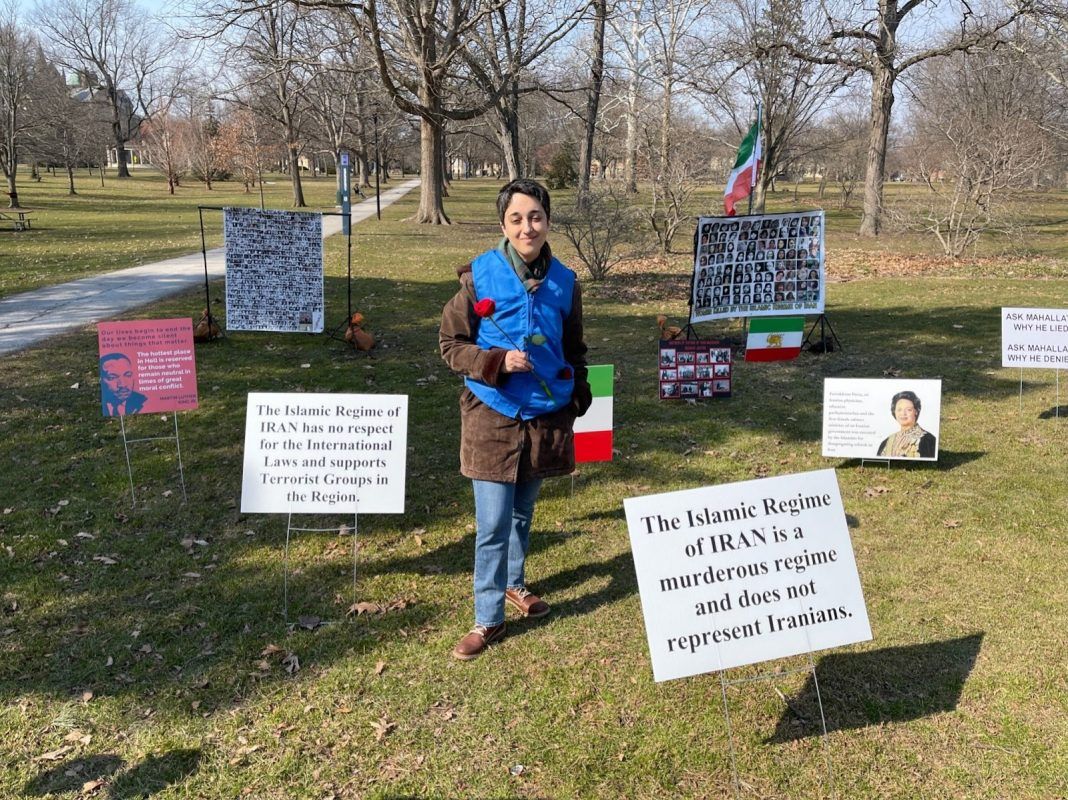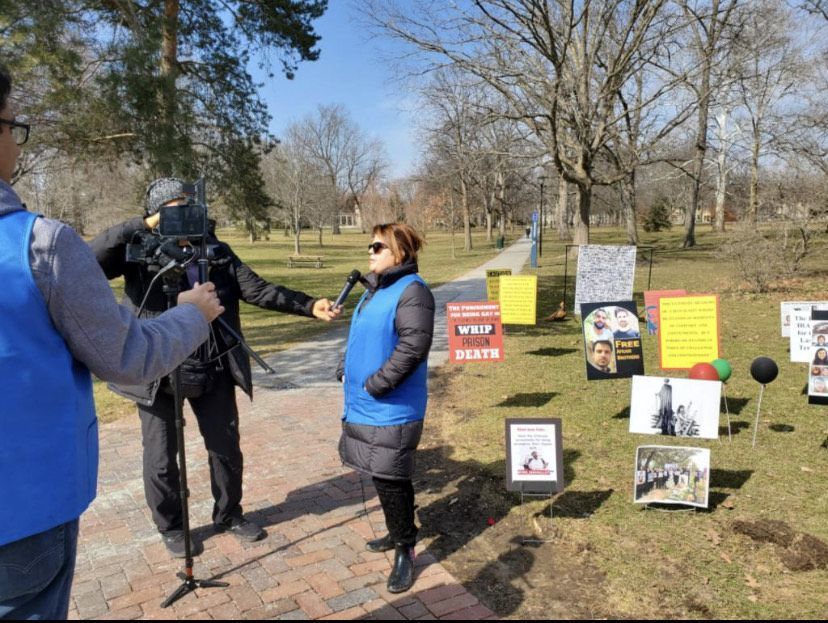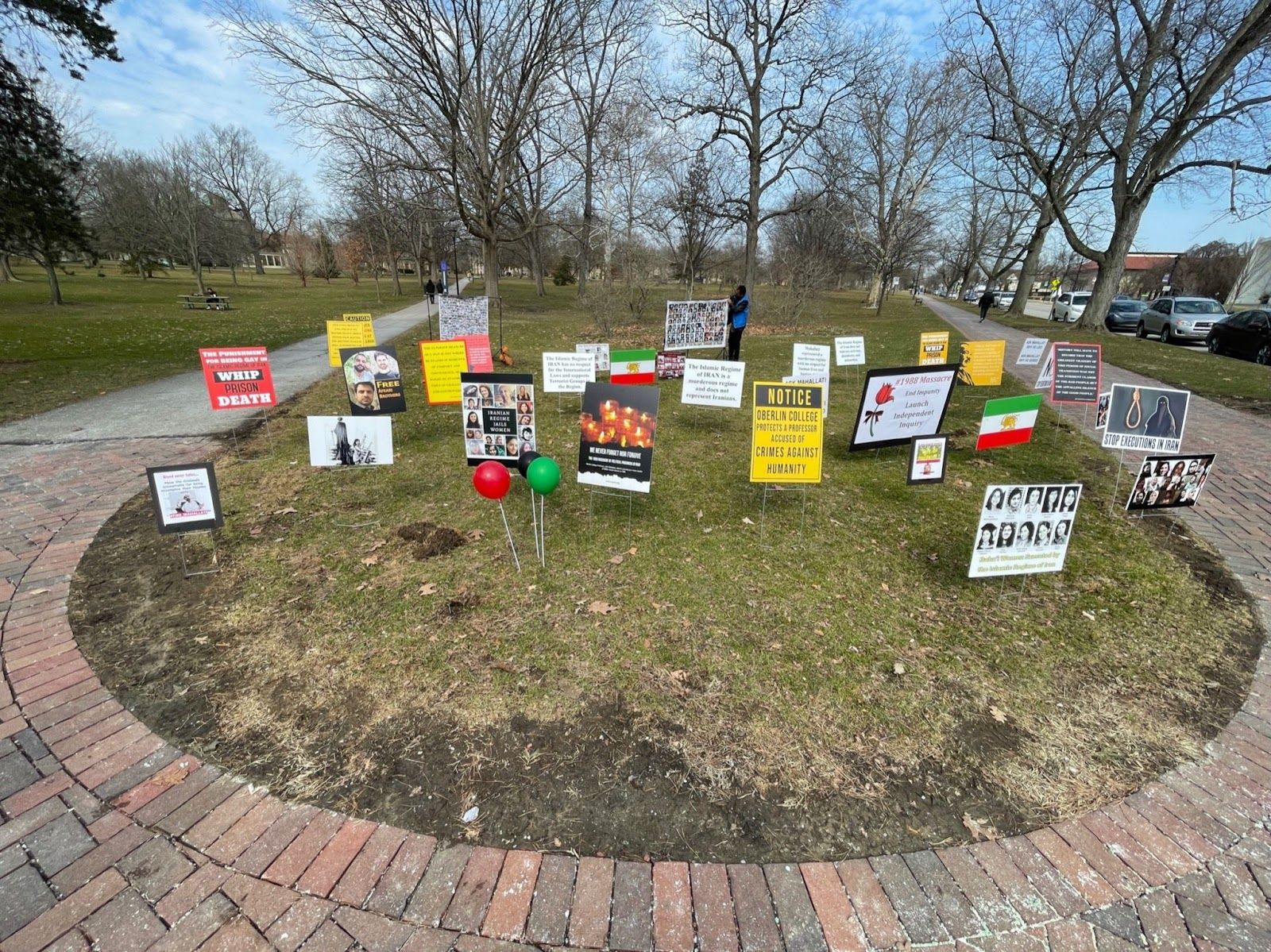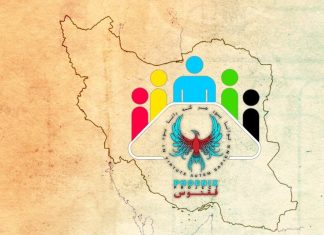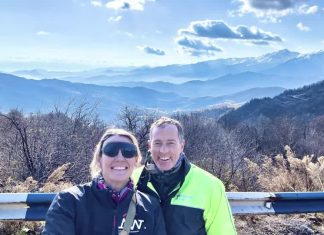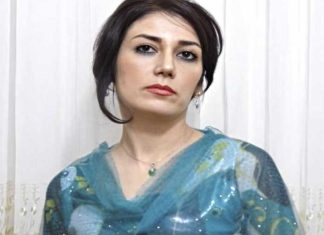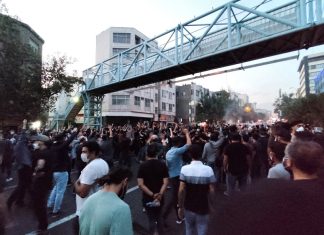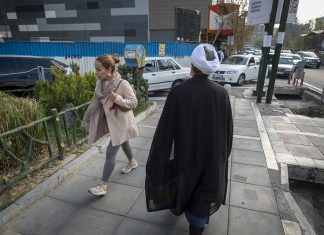By Kayhan Life Staff
Iranian-American protestors returned to Oberlin College in Ohio on March 5 to demand the removal of Professor of Religion and Chair of Middle Eastern and North African Studies Mohammad Jafar Mahallati — Iran’s former ambassador to the United Nations — who they accuse of denying the mass executions conducted by Iran in the summer of 1988.
[aesop_image img=”https://kayhanlife.com/wp-content/uploads/2022/03/0980-e1646904009961.jpg” panorama=”off” credit=”KL./” align=”center” lightbox=”on” captionsrc=”custom” captionposition=”left” revealfx=”off” overlay_revealfx=”off”]
The protest was organized by the Oberlin Committee for Justice for Mahallati’s Victims, a group that includes families of executed political prisoners in Iran, as well as Oberlin College students, alumni, and human rights activists. The Committee said it had appealed to the Board of Oberlin for “transparency and accountability.”
“People like Mahallati are the propaganda machine of this brutal regime and normalize these crimes and hide the true nature of this oppressive regime,” said Lawdan Bazargan, whose 22-year-old brother was executed in 1988 after being convicted of supporting a communist group in a trial that lasted minutes.
“Protecting Mahallati and ignoring the families of the victims of Mahallati proves lack of leadership and shameful failure” of the Oberlin College administration, she added.
ANALYSIS: What Role Did Iran’s New President Play in the 1988 Executions?
EXCLUSIVE – U.N. Expert Backs Probe into Iran’s 1988 Killings, Raisi’s Role
New Database Tracks Iran’s Human Rights Violations Since 1979
While serving as Iran’s Ambassador and Permanent Representative to the UN (1987 to 1989), Mahallati denied the July 1988 executions of thousands of political dissidents in Iran, according to a 2018 Amnesty International Report. Mahallati told the UN Special Representative on the situation of human rights in Iran that “many killings had in fact occurred on the battlefield, in the context of the war, following the invasion of the Islamic Republic of Iran” by the opposition People’s Mojahedin Organization of Iran, according to the Amnesty Report.
[aesop_document type=”pdf” src=”https://kayhanlife.com/wp-content/uploads/2022/03/MDE1394212018ENGLISH.pdf” title=”Blood-Soaked Secrets” caption=”Why Iran’s 1988 Prison Massacres Are Ongoing Crimes Against Humanity” download=”on”]
Oberlin College subsequently conducted an investigation into the charges against Mahallati and published the results in October 2021.
The inquiry “did not find proof to corroborate the allegations” that Mahallati “knew of the atrocities at the time he was asked about them during his tenure at the United Nations,” and Mahallati himself “denied knowing of the atrocities when they took place in Iran in 1988,” Oberlin College said in an October 2021 news release. As a result, “the College could find no evidence to corroborate the allegations against Professor Mahallati, including that he had specific knowledge of the murders taking place in Iran.”
Mahallati, who was quoted in the Oberlin news release, said: “The official positions I formally took at the United Nations during the time I served do not portray my personal views … My personal views are well portrayed in all my published books, articles, and teachings during the last 30 years since I left the U.N. post. “
His lawyer Gregory Kehoe added: “As the UN Permanent Representative for Iran, [Mahallati] did not enjoy the traditional diplomatic communication relationship with his country, which was in turmoil. Faced with a complete lack of information about these events, Professor Mahallati attempted to defend his country when the evidence of these executions first surfaced.”
A month later, in an opinion piece, the Editorial Board of the Oberlin Review challenged the findings of the inquiry, saying that journalists at the Review had done reporting on the issue, and adding: “This Editorial Board has found the evidence against Mahallati to be overwhelming.”
The piece said that Oberlin College had refused to “release any details of the investigation” into Mahallati, and was “inadvertently” helping Iran “in its efforts to conceal its decades-long record of crimes against humanity.”
“We ask that the College demonstrate that it followed its due diligence to examine every piece of evidence regarding Mahallati’s involvement in covering up Iran’s crimes,” the Oberlin Review concluded.
The Oberlin Committee for Justice for Mahallati’s Victims began its campaign on Oct. 8, 2020, with a letter signed by more than 600 hundred victims, survivors, and human rights experts urging Oberlin College President Carmen Twillie Ambar to conduct “a fair investigation.” The campaigners said they received no reply, and neither did lawyers, former hostages, victims’ families, and journalists who had raised the issue.
Kaveh Shahrooz, a lawyer and human rights activist who has been involved in the campaign from the outset, said the fight would continue for the Oberlin administration “to conduct a fair and transparent investigation of a man we believe was responsible for hiding crimes against humanity from the world.”
“We will continue to demand justice by every legal means possible,” he said.
Hassan Dai, a prominent Iranian political activist, said he was surprised at how “some former high-ranking Iranian officials are welcomed into the US and recycled as scholars in the most prestigious universities. As diplomats, they represented a barbaric regime that not only has the most horrific record of human rights violations but has also been considered by consecutive US administrations as the main sponsor of terrorism in the world.”

